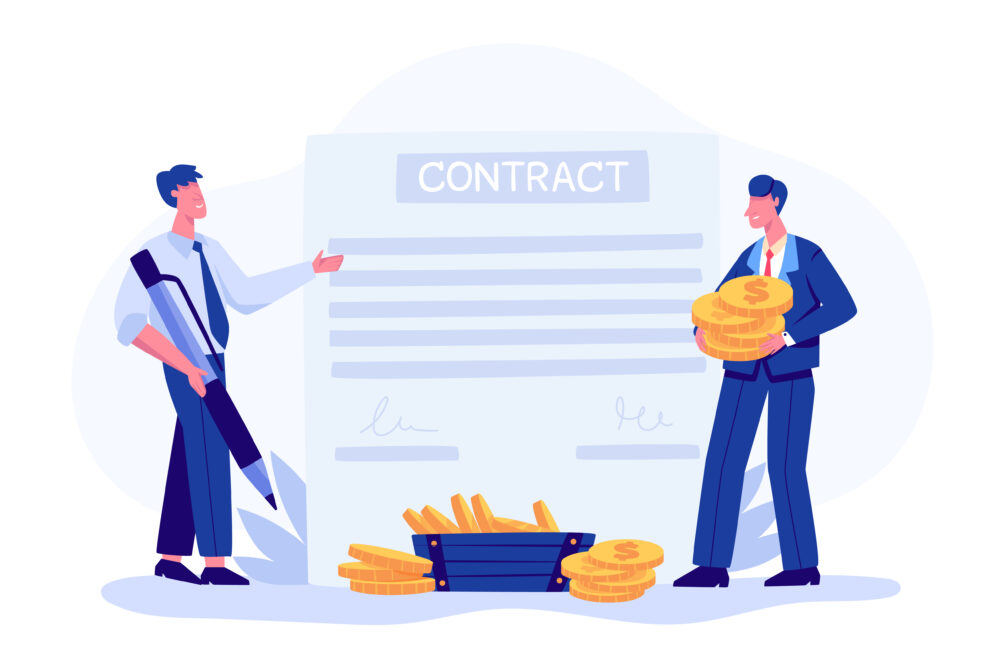Earnest money deposit is one of the most important concepts for home buyers to understand when purchasing real estate. But what exactly is earnest money, and how does it work in the home buying process? This comprehensive guide will explain everything you need to know about earnest money deposits.
What is an Earnest money deposit (EMD)?
An earnest money deposit (EMD) is a payment made by a home buyer to the seller to demonstrate serious intent to purchase the property. It is a good faith deposit, typically 1-3% of the purchase price or a rounded-off amount like $2000 or $5000, that goes towards the down payment and closing costs if the deal goes through. The earnest money provides reassurance to the seller while allowing the buyer time to secure financing and complete inspections before closing.

What is the purpose of the earnest money deposit?
When you make an offer on a home, you will likely be required to put down an earnest money deposit. This deposit shows the seller that you are serious about purchasing the home. It provides reassurance that you won’t walk away once your offer is accepted.
The earnest money deposit gives you extra time to complete inspections and appraisals, as well as secure financing before closing.
Who keeps earnest money if the deal falls through?
If the deal falls through, what happens to the earnest money depends on the circumstances. Earnest money provides compensation to the seller if the buyer defaults for a reason that isn’t covered in the contract.
For example, if the buyer simply changes their mind and walks away, the seller may keep the earnest money deposit. But if valid contingencies occur – a failed home inspection, for example – the buyer will get the deposit back.
The purchase agreement outlines specific conditions where the buyer would either forfeit or get back earnest money if the deal falls apart.
Who gets earnest money when buyers back out?
Buyers can legally back out of a deal and get their earnest money back if certain contingencies are not met. For example:
- The home inspection reveals undisclosed problems
- The appraisal comes back under the purchase price
- The buyer cannot get adequate financing
- The attorney disapproves of the contract terms
However, if the buyer gets cold feet for no valid contractual reason, the seller may keep the earnest money as compensation for taking the home off the market.

Why is earnest money refunded?
Earnest money is refunded to buyers in situations such as failed home inspections, low appraisals, inability to secure a mortgage, and title issues. These conditions must be met as listed in the purchase contract’s contingencies in order for the buyer to recover their deposit.
Common situations where buyers receive an earnest money refund
- The home doesn’t pass inspection – Serious structural or system issues may be uncovered that the buyer is not willing to take on.
- The appraisal is low – If the home doesn’t appraise for at least the purchase price, the buyer’s financing may fall through until the price drops.
- The buyer can’t get a mortgage – Earnest money is returned if the buyer is unable to secure financing even after making a good faith effort.
- Title problems – A clouded title history can derail a closing and cause the earnest money to be reimbursed.
As long as the purchase contract’s contingencies are properly followed, buyers have an opportunity to walk away and recover their deposit if issues arise.
What happens to earnest money if the loan is denied?
If the buyer’s mortgage application is denied during the financing contingency period, they can get their earnest money deposit back. The buyer should make sure the purchase contract has a financing contingency ahead of time, which would return the earnest money if loan approval fails due to reasons like poor credit history, insufficient income, low appraisal, or inadequate down payment.
Lenders deny mortgages for reasons like:
- Insufficient income or high debt-to-income ratio
- Poor credit history
- Inadequate down payment amount
- Appraisal coming back under the purchase price
As long as you make a good-faith effort to get financing and act on time, a loan denial should allow for a release of your earnest money.

How common is it to lose earnest money?
It is relatively rare for buyers to lose earnest money, as long as they work within the established time frames and contract contingencies. Buyers can lose deposits by missing inspection deadlines, failing to close in a timely manner, allowing a financing contingency to expire before securing a loan, or changing their minds arbitrarily.
Some reasons why buyers lose deposits include:
- Backing out after the inspection timeframe expires
- Being unable to close on time, after contingencies have lapsed
- Trying to negotiate a lower price, even with appraisal showing full value
- Simply changing their mind for no allowable reason under the contract
Lost earnest money is more common in highly competitive markets where sellers enforce tight timelines. Carefully reviewing the purchase agreement can protect you from losing a deposit.
Can I lose more than my earnest money?
Your attorney may be able to negotiate a contract term that provides the earnest money deposit is the maximum amount you can lose if a deal dissolves. However, in the absence of such a term, a breach of contract can make you responsible for seller losses and expenses in excess of the earnest money.
Under certain circumstances, you may forfeit more than just the deposit:
- If you back out very late in the closing process, you may be responsible for covering the seller’s costs incurred in anticipation of closing.
- If the market deteriorates, you can potentially be liable for the difference in sale price if the seller can no longer sell for the offer price of your contract.
- Though highly unusual, there is some risk of being sued by the seller for specific performance.
To avoid additional liability, closely follow the purchase contract’s terms and timelines.

Learn what is cash to close and how much closing costs you should budget when you close on your house.
In Summary
Earnest money provides home buyers and sellers assurance during the transaction process. Understanding how it works in the broader contractual framework prevents earnest money deposit loss and disputes.
Be sure to carefully consult your real estate attorney when making an offer and negotiating the amount of your earnest money deposit. Your attorney should also guide you through each stage of the transaction to ensure that your contingencies for attorney review, inspection and financing remain active for as long as you need to ensure that you don’t risk losing your earnest money.


